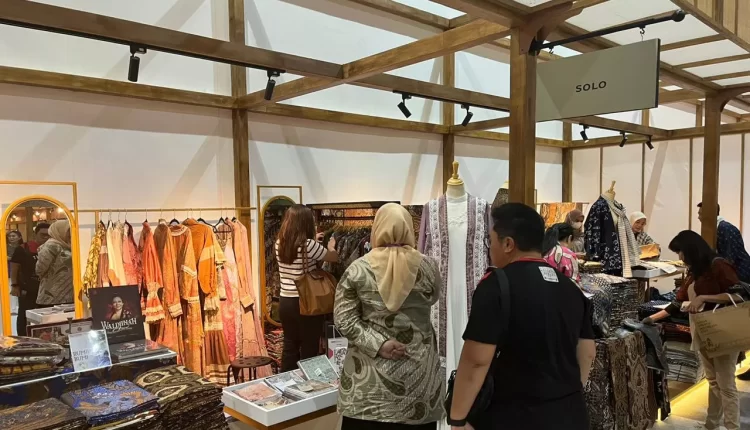Import Tax Policy Increases Competitiveness of MSME Products
By: Dhita Karuniawati)*
Micro, Small, and Medium Enterprises (MSMEs) play an important role in the national economy. MSMEs dominate economic growth by contributing around 60.5 percent of gross domestic product (GDP) and absorbing 96.9 percent of the total workforce. For this reason, the government continues to encourage the MSME sector through various policies and programs that are expected to advance the sector. One of them is the import tax policy to increase the competitiveness of MSME products.
Over the past decade, the Indonesian government has demonstrated a strong commitment to supporting the development of MSMEs, especially in expanding market access abroad. As part of the 2015 Economic Policy Package, the government issued the Minister of Finance Regulation (PMK) Number 177/PMK.04/2016 to support the improvement and expansion of export markets for small and medium enterprises (SMEs).
Coordinating Minister for Food, Zukifli Hasan ensured that he will soon implement import duties of 100%-200%. This is done to suppress the entry of imported goods in the domestic market which will slowly kill the domestic industrial sector and Micro, Small and Medium Enterprises (MSMEs).
Zukifli Hasan said, almost all ready-to-wear imported goods will be subject to import duties that average above 100%. Some of them are like beauty products, footwear, ready-to-wear, TPT and ceramics. All will be subject to import duties above 100%.
Responding to the Coordinating Minister’s statement, Deputy Chairperson of the Organization and Membership Division of the Indonesian National Importers Association (GINSI) of East Java, Medy Prakoso said that in terms of economic turnover, what the government has done is in a good direction because most of Indonesia’s imports, around 78 percent of which are raw materials that will then be processed domestically. Then, of that amount, as many as 85 out of 78 percent of the imported raw materials are all absorbed and processed again into finished products for export.
Meanwhile, Deputy Minister of SMEs, Helvi Yuni Moraza asked Minister of Finance (Menkeu) Sri Mulyani to increase taxes on imported goods so that local products, especially from SMEs, can be competitive. So far, imported goods entering Indonesia are sold at cheaper prices, so they become the people’s choice. As a result, local products produced by SMEs are not selling.
In addition to tightening the flow of imported goods, the government is trying to strengthen MSMEs, starting from access to capital, where the government has launched the LPDB MSME financing scheme and the ministry is also lobbying banks to lower their interest rates for MSMEs so that competitiveness in terms of price increases.
From the side of MSMEs themselves, they must have a spirit called Lidin, or loyalty, integrity, discipline, and innovation, where business actors must be loyal to their consumers by not reducing quality when it has been widely used or consumed by the public for high profits. Then, business actors also need to have integrity by adhering to the contractual agreements made. Helvi appealed to business actors to be disciplined, if the contract says 15 days, don’t back down to 20 days. The last one is don’t stop innovating, because today’s competition is not local, but global.
The government through regional offices should inventory MSME entrepreneurs who are then grouped according to their clusters such as agriculture, fashion, food, or creative economy to be given their respective treatments. Because each cluster has a different treatment. His party hopes that according to President Prabowo’s direction, all work serves the community starting from the bottom. Of course, this requires cooperation from all parties.
Previously, the Minister of Finance, Sri Mulyani Indrawati officially issued the Minister of Finance Regulation (PMK) Number 81 of 2024. The PMK concerning Tax Provisions in the Framework of the Implementation of the Core Tax Administration System or the implementation of the core tax system also regulates the collection of import duties and VAT.
The PMK was released on October 18, 2024. In this case, PMK 81/2024 regulates the implementation of the renewal of the tax administration system to be more transparent, effective, efficient, accountable, and flexible.
In general, PMK 81/2024 adjusts the provisions related to taxpayer registration and confirmation of taxable entrepreneurs, tax payments and deposits, tax reporting and tax administration services.
One of the things regulated is the import of goods that are exempt from import duties and VAT. Article 219 paragraph 1 states that there are 19 types of imported goods that are free from import duties and VAT. This number has increased because in Law No. 17/2006, there are only 17 types of imported goods that are exempt from tax.
The government’s commitment to import tax policies needs to be supported by all elements of society, especially the MSME sector. This is because this policy will be significantly beneficial for the progress of MSMEs in Indonesia. With a favorable exchange rate, our exporters should also be able to take advantage of this opportunity to increase exports. This is important to improve the trade balance in Indonesia.
*) The author is a contributor to the Indonesian Strategic Information Study Institute
